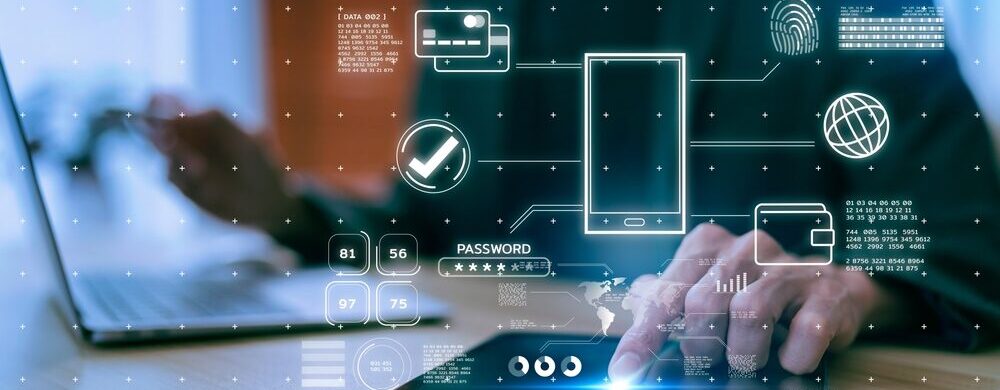It is important for city, county and state government revenue collections officials to understand the role today’s sophisticated technologies work in enhancing efficiency for revenue collections, understanding how online payment portals operate, and the disparate but necessary sources of revenue they handle.
The importance of efficiency in revenue collection
Efficiency in revenue collection is critical for several reasons. First, it directly impacts the financial health of government entities. Delays and errors in processing payments can lead to significant revenue shortfalls. Automated systems reduce the likelihood of such issues by streamlining the process and ensuring accuracy. This allows governments to allocate funds more effectively and maintain stable budgets, while also reducing the number of refunds processed due to inaccuracies in the collections process.
Second, improved efficiency enhances public trust and satisfaction. Citizens expect seamless interactions with government services. Long lines, complex processes and slow responses can frustrate the public, diminishing their trust in governmental institutions. Automated payment portals offer a user-friendly experience, allowing citizens to quickly and easily fulfill their financial obligations.
Last, greater efficiency in revenue collection frees up governmental resources. Staff who previously managed manual payment processes can be redirected toward more strategic tasks, such as improving public services or developing new community programs. This reallocation of resources can lead to a more effective and responsive government.
How automated payment portals work
Automated payment portals are digital platforms that allow users to make payments online. These portals are designed to be intuitive and secure, providing a seamless experience for users.
The user interface (UI) is the front-end component that users interact with. It’s designed to be accessible and easy to navigate, guiding users through the payment process with clear instructions and prompts. The UI must be accessible by users with vision impairment for ADA/WCAG compliance. It should also include the latest technology for mobile devices and digital wallet payment methods such as PayPal.
The payment gateway is the backend technology that processes the transactions. It handles the authorization of credit card and bank account transactions, ensuring that payments are securely transferred from the payer to the government’s account. Furthermore, funds must be automatically routed to the proper department’s account and must be done in no more than one to two business days and must be balanced to the penny for the day’s transactions.
The portal is integrated with government databases to verify user information and update payment records in real-time. This ensures that payments are accurately recorded and reflected in the government’s financial systems. However, when users are presented with amounts due, the information displayed must be close to real-time.
Advanced security measures, such as encryption and tokenization, are employed to protect sensitive financial information. Compliance with standards like PCI-DSS (Payment Card Industry Data Security Standard) is also essential to maintain trust and security. What’s more, the government office must not be exposed to the scope of these compliancy efforts, they must remain strictly at the gateway side.
Once a payment is processed, users receive instant notifications and digital receipts via email or SMS. This confirmation provides assurance that their payment has been successfully received.
Key sources of revenue managed by payment portals
State and local governments collect revenue from a variety of sources, many of which can be efficiently managed through automated payment portals. Here are several key examples:
Parking tickets: Traditionally, paying a parking ticket involved mailing a check or visiting a government office. Automated payment portals allow citizens to pay parking fines online quickly. This reduces administrative burdens and accelerates revenue collection.
Speeding tickets: Similar to parking tickets, speeding fines can be processed through online portals. Automated systems ensure that payments are accurately tracked, and reminders can be sent to individuals who have outstanding fines, reducing the incidence of unpaid tickets.
Water and utility bills: Many municipalities provide essential services such as water, electricity and waste management. Automated portals enable residents to pay their utility bills online, offering convenience and timely revenue collection. Additionally, features like automatic recurring payments can be set up to ensure consistent revenue flow.
Business licenses and permits: Local businesses are required to obtain licenses and permits, which involve fees. Automated portals facilitate the renewal and payment process, making it easier for businesses to comply with regulations while ensuring that municipalities receive the necessary revenue.
Court fees and fines: Courts often impose fees and fines for various legal proceedings. Automated payment systems provide a convenient way for individuals to settle these obligations, helping courts maintain their operations efficiently.
Benefits of adopting automated payment processing technologies
The adoption of automated payment processing technologies in state and local revenue collections offers numerous benefits, including increased collection rates. Automated systems make it easier for citizens to pay their dues, leading to higher collection rates and reduced delinquency. There are also cost savings involved, where reducing the need for manual processing, governments can save on labor costs and minimize the potential for human error.
Digital records of all transactions also enhance transparency and accountability, making it easier to track and audit financial activities. What’s more, online payment portals are accessible 24/7, allowing citizens to make payments at their convenience, which is particularly beneficial for those with busy schedules.
In an era where digital transformation is reshaping every aspect of society, state and local governments must prioritize the modernization of their revenue collection processes. Automated payment processing technologies in online payment portals represent a pivotal step towards greater efficiency, enhanced public satisfaction, and improved financial stability. By embracing these technologies, governments can ensure they are better equipped to meet the needs of their citizens and sustain their operations in an increasingly digital world. The future of revenue collection is digital, and the time to act is now.
Niko Spyridonos is CEO and founder of Autoagent Data Solutions, the market leading revenue payment processor with modernized service-focused solutions that eliminates refunds and provides up-to-the-minute accurate tax files and payments for local governments. The company’s customer-focused approach results in simplifying the revenue process for its government partners.

